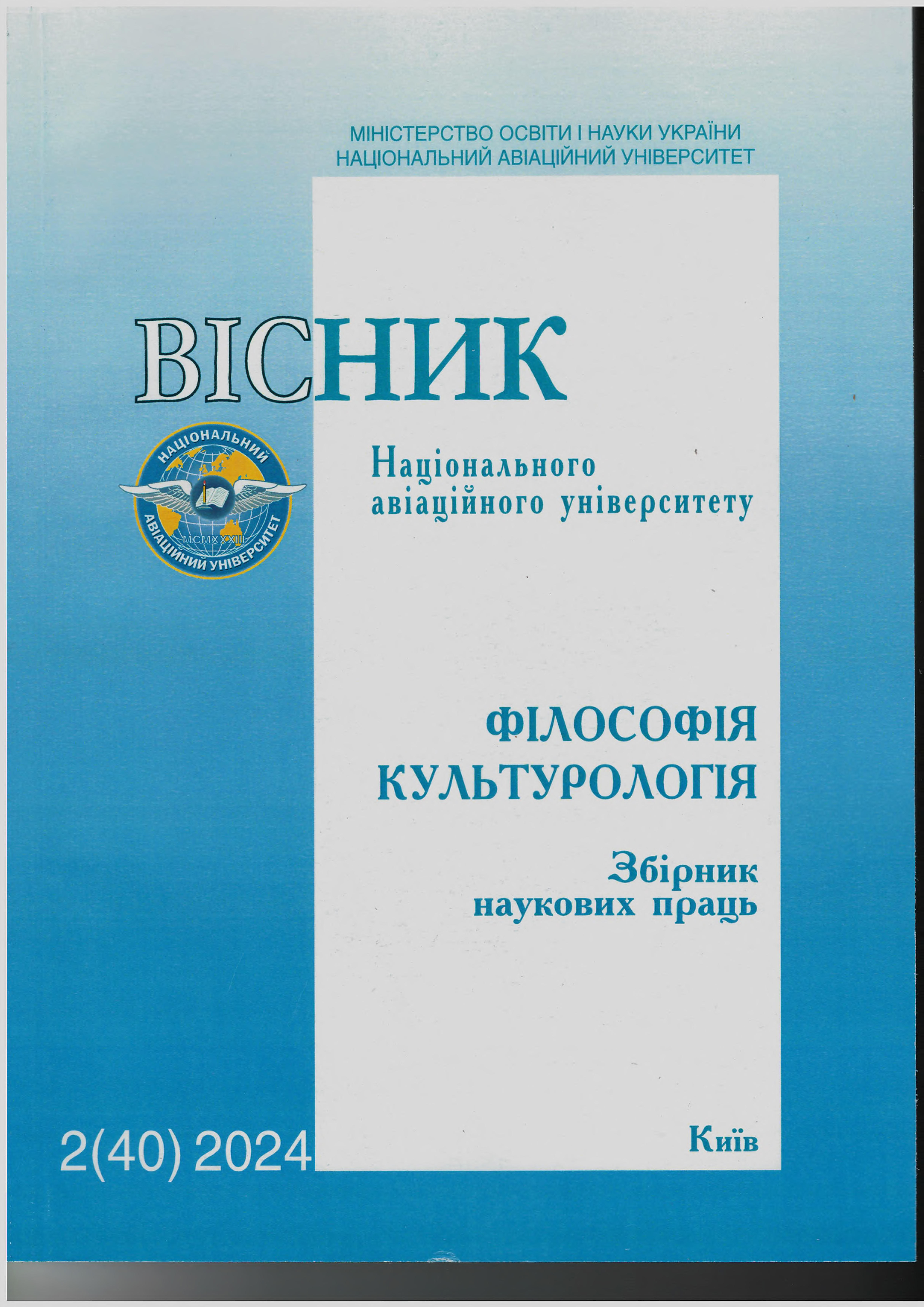HE HUMANISTIC ASPECT OF DIGITALIZATION IN MODERN UKRAINIAN EDUCATION
DOI:
https://doi.org/10.18372/2412-2157.40.19338Keywords:
humanism, anthropocentricity, digitalization, digital communication technologies, educationAbstract
In the context of globalization challenges, the development of education is undergoing changes as a result of its digitalization, highlighting the relevance of studying this phenomenon. While numerous publications have examined the organizational aspects of implementing digitalization in education, the humanistic component remains less explored. The aim and tasks. This article aims to understand the risks associated with the digitalization of education from a humanistic perspective, which is specified in the tasks: to analyze the works that deal with the specified process, and to outline the problems arising from the implementation of these technologies. Research methods. The theoretical and methodological basis of the research includes general scientific and special methods and approaches, applied to the study of education digitalization. Among these methods is a systematic approach, which aims to reveal the holistic nature of pedagogical phenomena (in this case, the various manifestations of digitalization). Research results. In our time, it is crucial to assess the acceptability the consequences of the introduction of digital technologies, their necessity, both from a humanistic perspective. Such an assessment should be based on the criterion of whether society's development is oriented towards the preservation of the biological species Homo sapiens. Digitalization of various spheres of life, including education, can be evaluated as both a positive and a negative phenomenon. The ambiguity of such an assessment lies in the fact that these technologies belong to information and communication technologies, as part of information and communication technologies, are inherently neutral from a humanistic perspective but can be used for different purposes. The limits of the spread of digital technologies in the educational sphere and the content of educational support on electronic media must be controlled at the state level. Discussion. The quality of education is determined not by the number of computers and information bases, but by the level of formation of humanistic personalities who are competent, particularly in the effective processing of information to acquire systematic and objective knowledge. Conclusions. Digitization should be implemented on a humanistic basis, ensuring the formation of humanistic personalities. Cases of the negative use of digital technologies should be neutralized in time, and their impact should be limited
References
Ашиток Н. І. Гуманістичні засади освіти для дітей з особливими освітніми потребами: соціокультурний підхід. Вісник Національного авіаційного університету. Серія: Філософія. Культурологія: Збірник наукових праць. Вип. 1 (37). 2023. С. 87-90.
Ашиток Н. І. Цифровізація дистанційного навчання в Україні. Вісник Національного авіаційного університету. Серія: Філософія. Культурологія. № 1 (33). 2021. С. 85-88
Бойко М., Топольницька К. Людиновимірність якості вищої освіти в епоху цифровізації. Ціннісні орієнтири в сучасному світі: теоретичний аналіз та практичний досвід: збірник тез ІV Міжнародної науково-практичної конференції. Тернопіль : Вектор; ТНПУ ім. В. Гнатюка, 2022. С. 352-356.
Гуманізм як явище і як філософське поняття. URL: https://studies.in.ua/shpora-filosophy/660-69-gumanzm-yak-yavische-yak-flosofske-ponyattya.html
Дем’янчук М., Боднарчук І. Цифровізація освіти як вектор підготовки фахівців ХХI століття. Viae Educationis. № 4. 2022. С. 74-81.
Дротянко Л. Г. Високі технології як засіб трансформації медіа-дискурсу. Вісник НАУ. Серія: Філософія. Культурологія. 2017. № 1 (25). С. 10-14.
Іщенко А. Ю. Національна платформа цифрової освіти як пріоритетний інструмент оновлення вітчизняної освітньої системи. URL: https://niss.gov.ua/ sites/default/files/2020-05/cyfrova-osvita.pdf
Крилова Ю. І. Інформаційне (цифрове) суспільство: політико-правовий аспект упровадження. Науковий часопис НПУ імені М.П.Драгоманова. № 27. 2020. С. 75-83
Куйбіда В. С., Карпенко О. В., Наместнік В. В. Цифрове врядування в Україні: базові дефініції понятійно-категоріального апарату. Вісник Нац. академії державного управління при президентові України. № 1. 2018. С. 5-11.
Мар’єнко М., Сухіх А. Організація навчального процесу у ЗЗСО засобами цифрових технологій під час воєнного стану. Український педагогічний журнал. № 2. 2022. С. 31-37.
Маркевич К. Цифровізація: переваги та шляхи подолання викликів. Разумков центр. 2021. URL : https://razumkov.org.ua/statti/tsyfrovizatsiia-perevagy-tashliakhy-podolannia-vyklykiv
Нікітенко В., Андрюкайтене Р., Воронкова В. Становлення і розвиток концепції цифрового гуманізму за доби глобалізації і цифровізації. Фундаментальні та прикладні проблеми суспільства: історія, сьогодення, майбутнє : тези доп. К. : Держ. торг.-екон. ун-т, 2024. С. 25-29.
Нікітенко В., Воронкова В., Тупахіна О., Сорокіна О. Європейські практики цифрового гуманізму у контексті глобальних викликів. Humanities studies: Collection of Scientific Papers. Вип. 18 (95). 2024. С. 52-64.
Руденко М. В. Цифровізація: категоріальні особливості та специфіка трактування. Економічний форум. № 4. 2021. С. 3-13.
Сухонос В. В., Гаруст Ю. В., Шевцов Я. А. Діджиталізація освіти в Україні: зарубіжний досвід та вітчизняна перспектива впровадження. Правові горизонти. № 19 (32). 2019. С. 79-86.
Україна 2030Е – країна з розвинутою цифровою економікою. URL: https://strategy.uifuture.org/kraina-zrozvinutoyucifrovoyu-ekonomikoyu.
Bell, D. The Social Framework of the Information Society. Oxford, 1980. 424 p.
Galbrait, John Kenneth. The New Industrial State. Boston, MA: Houghton Mifflin. 1967. 427 p.
Henseruk, H., Buyak, B., Kravets, V., Tereshchuk, H., Boiko, M. Digital transformation of the learning environment at university, Innovative Educational Technologies, Tools and Methods for E-learning. Katowice: Wydawnictwo Uniwersytetu Śląskiego. 2020: 325-335.
Toffler, Alvin. The Third Wav. New York: William Morrow and Company, Inc. 1980. 544 p.


